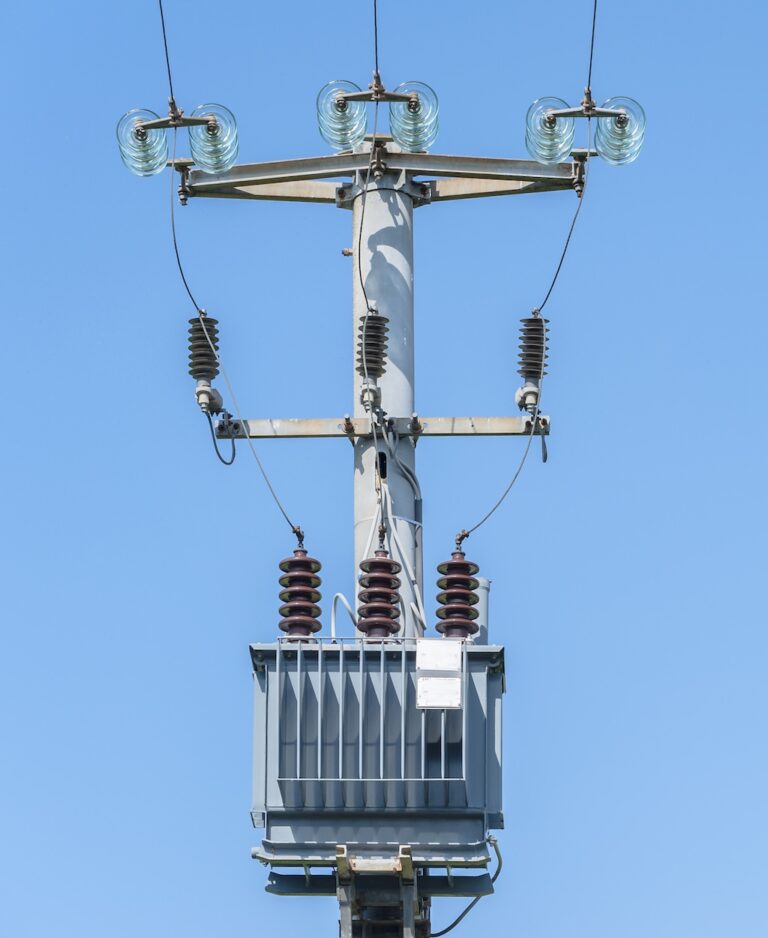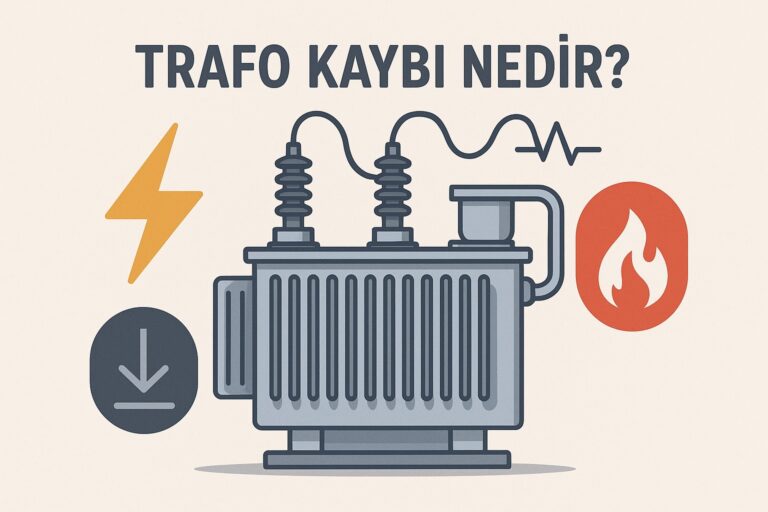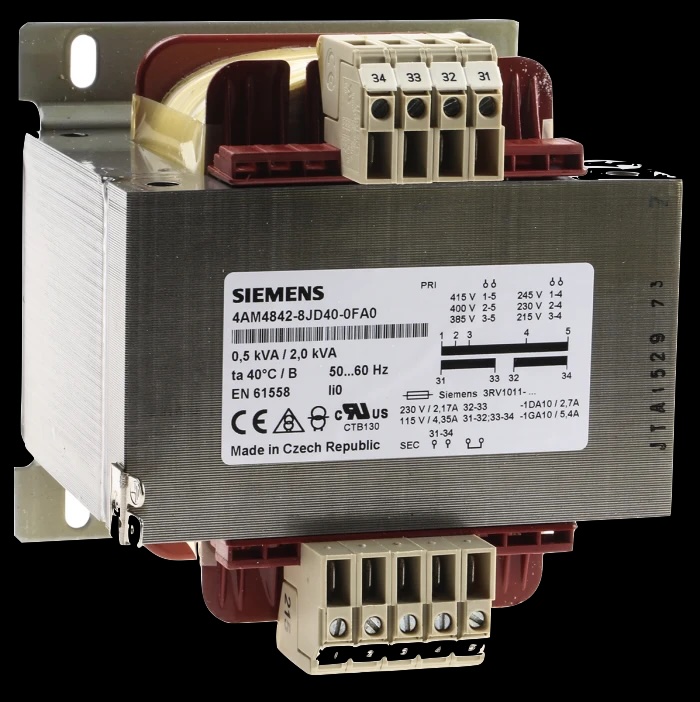What is a Transformer? What Does It Do?
A transformer is an essential device in electrical systems designed to transfer electrical energy between circuits. It efficiently converts voltage...
Devamını Oku

Industrial automation refers to the use of control systems, such as computers or robots, and advanced technologies to manage different processes and machinery within industries, minimizing the need for human intervention. This concept plays a crucial role in increasing productivity, efficiency, and safety in manufacturing and other sectors.
Industrial automation encompasses a range of technologies and tools designed to automate industrial processes. It integrates machinery, control systems, and software to optimize performance, reduce errors, and streamline operations. The key components of industrial automation include industrial control systems, robotics, sensors, and software platforms like PLC, SCADA, and DCS.
Industrial control systems (ICS) are at the heart of industrial automation, enabling industries to control and monitor equipment and processes. The three major types of ICS include Programmable Logic Controllers (PLC), Supervisory Control and Data Acquisition (SCADA) systems, and Distributed Control Systems (DCS). Each plays a significant role in ensuring efficient and safe operation in automated industrial environments.
A Programmable Logic Controller (PLC) is a digital computer used in industrial settings to control machinery. It automates specific processes, such as assembly lines, and offers real-time monitoring. PLCs are highly flexible, easily programmable, and capable of handling a variety of tasks in a fast-paced environment. PLC programming is a vital skill in industrial automation, enabling engineers to write code that governs machine operations efficiently.
SCADA (Supervisory Control and Data Acquisition) systems are designed to collect and analyze data from industrial processes. These systems allow operators to monitor, control, and manage systems remotely, ensuring real-time supervision and quick responses to any issues. SCADA plays an essential role in industries like oil and gas, water treatment, and power generation.
In the context of robot control systems, industrial robots are programmed to perform tasks autonomously or semi-autonomously, enhancing efficiency, precision, and safety. These robots are often used in tasks such as welding, packaging, and assembly, reducing the need for manual labor and human error.
Motion control systems regulate the movement of machinery and are often used in applications where precision is crucial, such as robotics, conveyors, and CNC machines. These systems consist of motors, drives, and controllers to ensure precise positioning and synchronization of mechanical movements.
Data collection and monitoring systems are essential for maintaining optimal performance in industrial automation. These systems gather data from various machines and processes, allowing for real-time decision-making and predictive maintenance, thus minimizing downtime and increasing operational efficiency.
The implementation of industrial automation provides businesses with several advantages, making it a valuable investment for enhancing competitiveness and operational efficiency.
One of the most significant benefits of industrial automation is the increase in cost efficiency and productivity. Automated systems can operate continuously without breaks, leading to higher output and reduced labor costs. Additionally, automation minimizes the risk of human error, resulting in fewer defects and wastage. This not only boosts productivity but also enhances the overall quality of products, giving businesses a competitive edge.
Moreover, automation allows for faster production cycles, reducing the time to market and increasing flexibility in responding to changing market demands. For example, industries such as automotive, electronics, and pharmaceuticals heavily rely on automation to meet high production demands efficiently.
Industrial automation is utilized across various sectors to optimize production and improve efficiency. Its applications range from manufacturing and energy management to logistics and healthcare.
Artificial Intelligence (AI) and Machine Learning (ML) are transforming the landscape of industrial automation by making systems smarter and more adaptable. AI can be used to analyze large amounts of data generated by industrial equipment, enabling predictive maintenance, improving decision-making, and enhancing overall operational efficiency.
For instance, machine learning algorithms can identify patterns in production processes and predict equipment failures before they happen, reducing downtime and repair costs. Additionally, AI can optimize production schedules, allocate resources more effectively, and even manage supply chain logistics, leading to more streamlined operations.
The rapid advancement of technology continues to shape the future of industrial automation. Emerging trends like robotic automation, IoT integration, and AI-driven systems are redefining how industries operate.
Robotic automation is increasingly being integrated into production lines to perform repetitive and dangerous tasks with high precision. Collaborative robots, or cobots, are designed to work alongside human operators, increasing safety and productivity in industries such as automotive and electronics. These robots can be programmed to handle complex tasks with precision, reducing the chances of error and improving overall efficiency.
Advanced robots equipped with AI capabilities can now make real-time decisions based on data from sensors, further optimizing production processes. This trend toward more intelligent, autonomous robots is expected to continue as industries strive for greater flexibility and efficiency in their operations.
The future of industrial automation is closely tied to the ongoing digital transformation in industries worldwide. With the rise of smart factories, interconnected systems, and data-driven decision-making, automation will play a pivotal role in shaping the future of manufacturing and other industries.
The integration of IoT (Internet of Things) and AI with automation systems is revolutionizing industrial operations. IoT devices collect vast amounts of data from machinery, which AI systems then analyze to optimize performance, detect anomalies, and provide real-time insights. This interconnectedness enables predictive maintenance, remote monitoring, and seamless communication between different parts of a production line.
For example, smart sensors can detect temperature changes, vibration, or pressure anomalies in equipment, triggering immediate adjustments or alerts before a breakdown occurs. This capability significantly improves uptime and reduces costs associated with unexpected equipment failures.
Industrial automation also contributes to energy efficiency by optimizing processes and reducing waste. Automated systems can regulate energy consumption by adjusting machine operations in real-time based on production needs, minimizing excess energy use. Additionally, advanced monitoring systems provide insights into where energy is being used inefficiently, allowing businesses to make informed decisions to lower energy consumption.
For industries like manufacturing, where energy costs can be a significant part of operational expenses, automation offers a clear path to cost savings and environmental sustainability. The incorporation of renewable energy sources into automated systems further enhances energy efficiency and reduces the industry’s carbon footprint.
Industrial automation is a cornerstone of modern industry, bringing numerous benefits such as improved productivity, reduced costs, and enhanced operational efficiency. With technologies like AI, machine learning, and IoT driving the next wave of automation, the future promises even more advanced systems capable of transforming industries. From smarter production lines to energy-efficient operations, industrial automation will continue to play a crucial role in digital transformation across various sectors.

A transformer is an essential device in electrical systems designed to transfer electrical energy between circuits. It efficiently converts voltage...
Devamını Oku
Transformers play a critical role in transmitting and distributing electrical energy efficiently. However, during this process, certain energy losses are...
Devamını Oku
An isolation transformer is a specialized type of transformer designed to transfer electrical power from a source to a load...
Devamını OkuPROTECTION OF PERSONAL DATA
WEBSITE COOKIE POLICY
Your personal data; It is one of the leading principles of our Organization to protect the privacy of visitors to the website (www.adatech.com.tr) operated by ADATECH as the data controller. This Cookie Usage Policy (“Policy”) explains to all our website visitors and users which types of cookies are used and under what conditions.
Cookies are small text files stored on your device or network server by websites you visit on your computer or mobile device.
They are generally used to provide you with a personalized experience during your use of the website you visit, to improve the services offered and to improve your experience, and may contribute to ease of use while browsing a website. If you do not prefer the use of Cookies, you can delete or block Cookies in your browser settings. However, we would like to remind you that this may affect your use of our website. Unless you change your cookie settings in your browser, we will assume that you accept the use of cookies on this website.
1. WHAT KIND OF DATA IS PROCESSED IN COOKIES?
Cookies on websites, depending on their type, collect data about your browsing and usage preferences on the device you visit the site. This data includes information about the pages you access, the services and products you review, your preferred language option and other preferences.
2. WHAT is a solution and what are its intended uses?
Cookies are small text files that are stored on your device or network server through browsers by websites you visit. These small text files, which contain your preferred language and other settings on the site, help us remember your preferences the next time you visit the site and make improvements to our services to improve your experience on the site. Thus, you can have a better and personalized usage experience on your next visit.
The main purposes of using cookies on our Website are listed below:
3.TYPES OF COOKIES USED ON OUR WEBSITE
3.1. Oturum Çerezleri
Session cookies ensure that the website functions properly during your visit. They are used for purposes such as ensuring the security and continuity of our sites and you during your visit. Session cookies are temporary cookies, they are deleted when you close your browser and come to our site again, they are not permanent.
3.2. Persistent Cookies
These types of cookies are used to remember your preferences and are stored on your device via browsers. Persistent cookies remain stored even after you close your browser or restart your computer from which you visited our site. These cookies are kept in subfolders of your browser until they are deleted through your browser’s settings.
Some types of persistent cookies may be used to provide you with special suggestions, taking into account issues such as your purpose of using the Website.
Thanks to persistent cookies, if you visit our Website again with the same device, it is checked whether there is a cookie created by our Website on your device and if there is, it is understood that you have visited the site before and the content to be transmitted to you is determined accordingly and thus a better service is provided to you.
3.3. Mandatory/Technical Cookies
These cookies are essential for the website you visit to function properly. The purpose of such cookies is to provide necessary services by enabling the website to function. For example, it allows you to access secure parts of the website, to use its features, to navigate on it.
3.4. Analytical Cookies
They collect information about the way the website is used, the frequency and number of visits, and show how visitors navigate to the site. The purpose of using such cookies is to increase performance by improving the way the site functions and to determine the general trend direction. They do not contain data that could enable the identification of visitors. For example, they show the number of error messages displayed or the most visited pages.
3.5. Functional/Functional Cookies
It saves the choices made by the visitor within the site and remembers them on the next visit. The purpose of such cookies is to provide ease of use to visitors. For example, it prevents the site user from re-entering the user password on each page they visit.
3.6. Targeting/Advertising Cookies
They enable the measurement of the effectiveness of advertisements served to visitors and the calculation of the number of times the advertisements are viewed. The purpose of such cookies is to serve ads customized to the interests of visitors.
Likewise, they enable the detection of visitors’ interests specific to their browsing and the presentation of appropriate content. For example, it prevents the advertisement shown to the visitor from being shown again in a short time.
4. HOW TO MANAGE COOKIE PREFERENCES?
To change your preferences regarding the use of cookies or to block or delete cookies, simply change your browser settings.
Many browsers give you the option to accept or reject cookies, accept only certain types of cookies, or be alerted by the browser when a website requests to store cookies on your device so that you can control cookies.
It is also possible to delete cookies previously saved in your browser.
If you disable or refuse cookies, you may need to set some preferences manually, some features and services on the website may not function properly as we will not be able to recognize and associate your account. You can change the settings of your browser by clicking on the relevant link from the table below.
5. ENFORCEMENT OF WEBSITE PRIVACY POLICY
Website Privacy Policy …./…./…./…. . is dated. In case all or certain articles of the Policy are renewed, the effective date of the Policy will be updated. The Privacy Policy is published on the website of the Authority (www.adatech.com.tr) and made available to the relevant persons upon the request of the personal data owners.
ADATECH
Address: Esenyalı Neighborhood Yanyol Street Varyap Plaza No:61-148 Pendik / Istanbul
Telephone: +90 (216 ) 514 80 69
E-mail: [email protected]
Web Address: www.adatech.com.tr